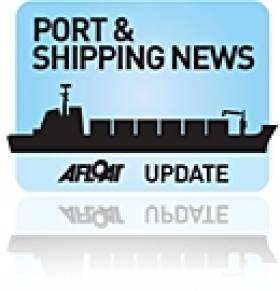Displaying items by tag: Anglia Seawys
Ferry-Fallout as DFDS Exit Irish Sea
The routes represented a fifth of the freight market and will result in the withdrawal of the twin 21,856grt passenger ferry (ro-pax) sisters, Dublin Viking and Liverpool Viking on the 7-hour Mersey route and the 13,000grt freighter Anglia Seaways on the route to Lancashire.
In recent years, new tonnage notably in the form of four freight-only newbuilds commissioned for Seatruck Ferries on their Warrenpoint-Heysham and Dublin-Liverpool routes has added to intense competition in a crowded north Irish Sea ferry-freight sector.
The process to purchase Norfolkline's Irish Sea operations by DFDS Seaways was finally completed in mid-summer of last year. The acquisition saw the Scandinavian newcomer take control of four routes between Birkenhead-Belfast / Dublin and the freight-only Heysham-Belfast / Dublin services and a fleet of seven vessels, four (ro-pax) ferries and three freight-only vessels.
DFDS Seaways latest decision is all the more dramatic as the company in early December then sold both Belfast routes to Birkenhead and Heysham to Stena Line. In addition the £40m acquisition included the sale of the chartered 27,510 ro-pax sisters Lagan Seaways and Mersey Seaways and the 13,000grt freighter half-sisters, Scotia Seaways and Hibernia Seaways. The deal is significant in that Stena will make an inaugural foothold on the Merseyside market.
With the sea-changes swirling in the Irish Sea market, the dominant player is with out doubt Stena Line. The ferry operator closed late last year the Larne-Fleetwood route and three vessels (for more information about those vessels click here) yet the inclusion of the former DFDS Belfast-Heysham route is closely similar with neighbouring ports and newer larger vessels.
The acquisition by Stena of the loss making routes from DFDS last month also coincided with a review to be conducted by the Danish companies remaining Dublin routes to Birkenhead and Heysham. The findings of that review were concluded with this months' decision by DFDS to close down the routes, marking the Scandinavians operators brief foray on the Irish Sea ferry scene.
























































